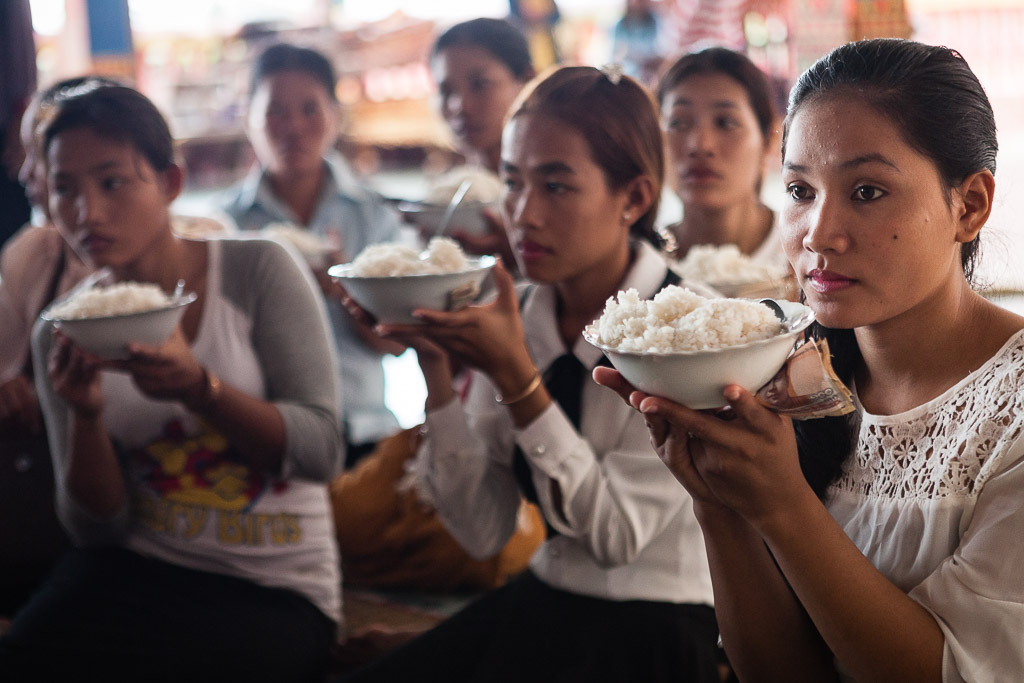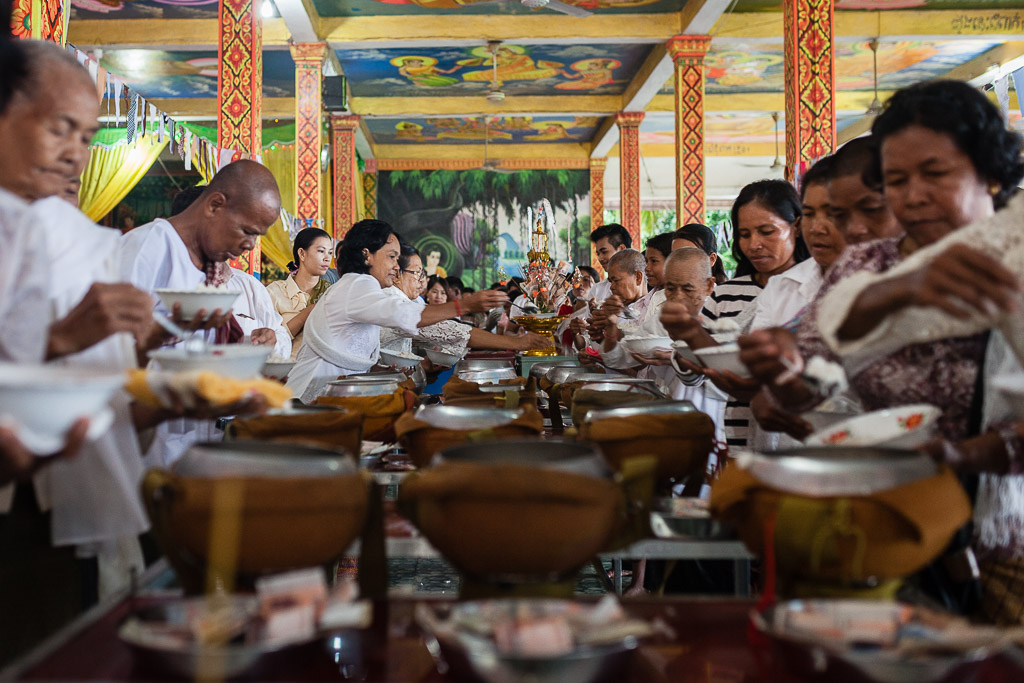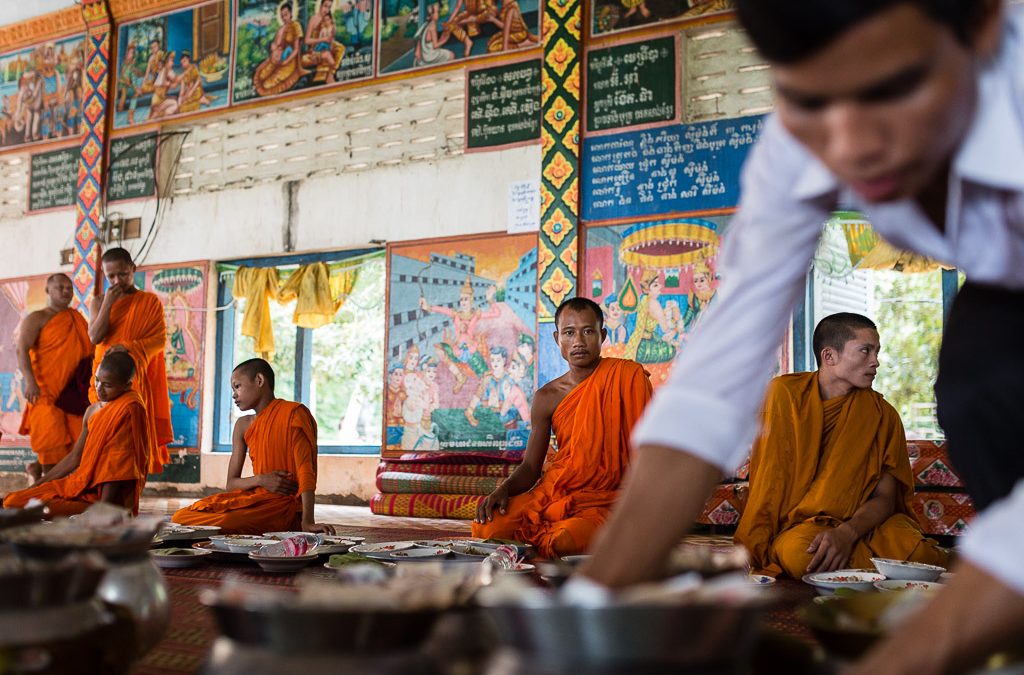Hey everyone! I wanted to use today’s blog post to explain a Khmer festival that often confuses visitors to Cambodia, Pchum Ben.
The festival name translates roughly to “Ancestor Days,” but is also sometimes referred to as “the Festival of the Dead.” In short, Cambodians have a deep-rooted respect for their parents, grandparents, and ancestors. There is no better time to observe this respect than this particular 15-day-long religious holiday, usually in September or early-October, where families gather together to make offerings to those who’ve come before them.
During the first two weeks of the festival, Cambodian villagers take turns in making offerings of food to their ancestors going back as far as seven generations. Throughout the festival, the gates of hell are believed to be open, and the souls of the dead come back to seek respite from their torture in the form of food. Failure to provide sufficient food for the dead is said to bring bad luck, so food turns up early and in abundance. While the food is (technically speaking) prepared for one’s ancestors, visitors to the pagoda will tuck into the food all day, as will the monks, provided they do so before noon, after which they cannot eat any more that day.

Women make offerings of rice as part of a the Pchum Ben Festival, Cambodia.
As well as offerings of food, every day, starting from the early hours of the morning, monks chant loudly the Suttas/Sutras from the Pali Canon, a collection of scriptures in the Theravada Buddhism faith – for this reason, a lot of the expats in Siem Reap take leave abroad in order that they might grab the occasional full night’s sleep!). Local people will make a number of visits to various pagodas where the ashes of their ancestors were interred after they had passed away.
The final day of Pchum Ben is considered the most important day of this fortnight and is a public holiday throughout Cambodia. Shops are closed, the cities are quiet, and the pagodas are packed! There was even a rare day off at Angkor Travel Photography, where we are in a rather unique position to witness this holy time first-hand by virtue of our family situations: Régis is married with two children to a Cambodian, so family days are a special time when he takes time out from photography to spend the day with his girls; Alessandro’s partner is Khmer and so, similarly, he shied away from work so that he and his partner could spend the time together. For both of us this year, that meant gathering with our families at pagodas around Siem Reap Province. We thought we’d share a glimpse into life in Cambodia during one its holiest festivals.

Visitors to a pagoda in Siem Reap eat an assortment of prepared foods during Pchum Ben
If you find yourself in Cambodia over Pchum Ben next year, visits to the pagodas are always welcome so long as you are respectful to the people/traditions practiced there.
